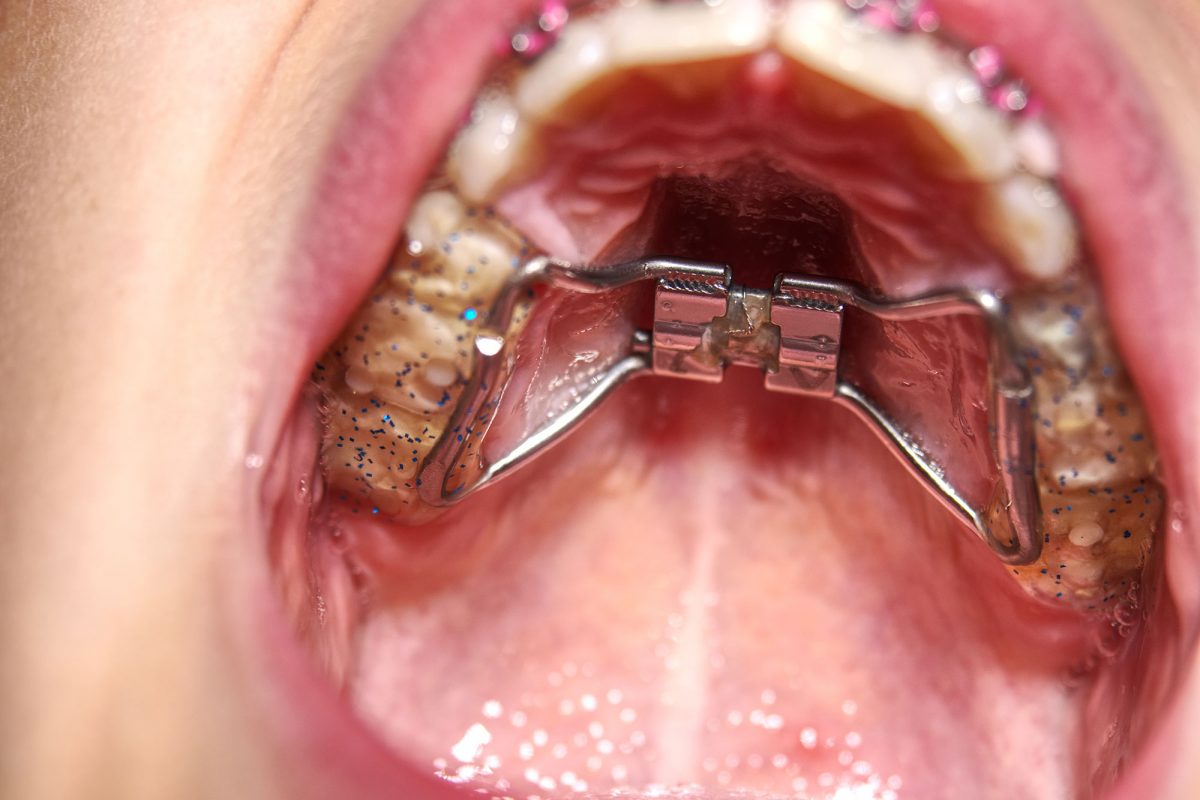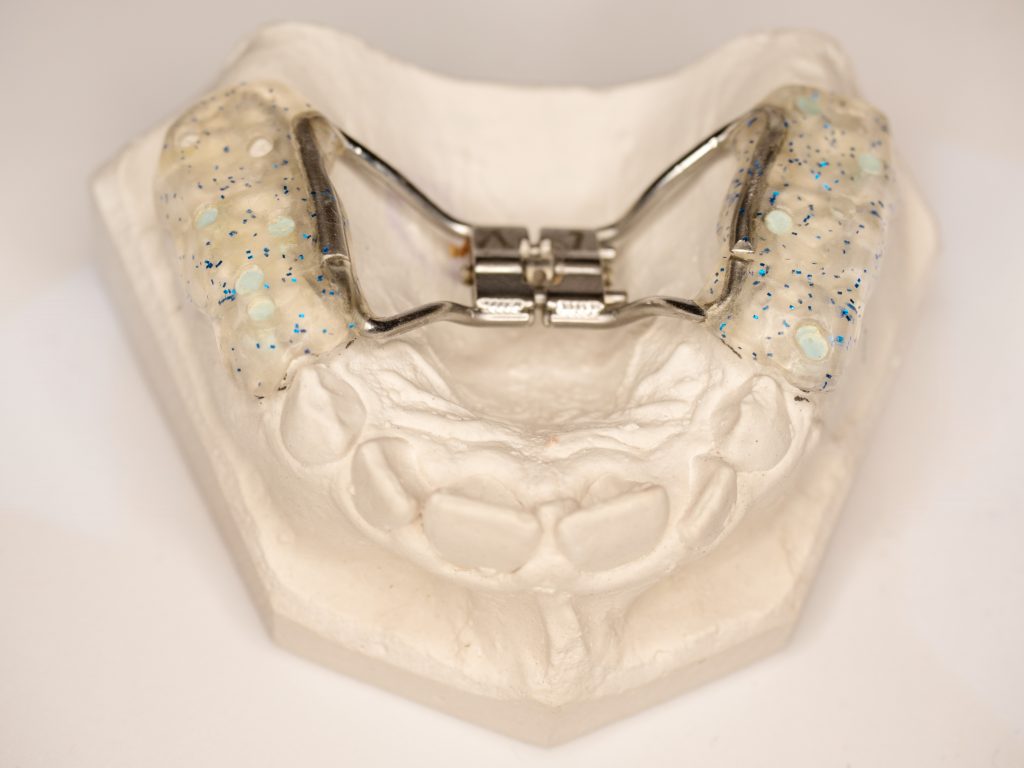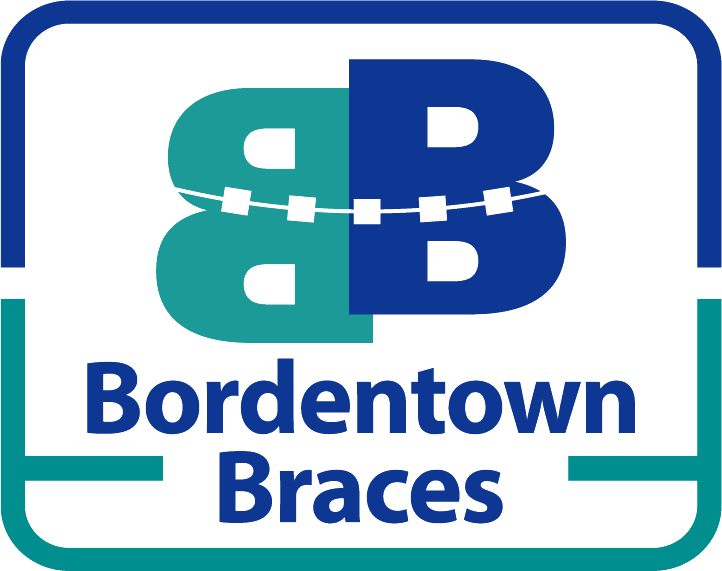
Palatal Expanders FAQ – Everything You Need to Know

Palatal expanders can seem like daunting devices. However, our NJ orthodontist is here to give you a palatal expanders FAQ- all of the details about these tools and how they can help youth with dental problems.
One of the main benefits of getting orthodontic treatment during childhood is that there is a potential for the orthodontist to utilize a young person’s natural process of growth to treat or prevent bad bites. The palatal expander is designed to assist with this process.
Palatal Expander Overview
Palatal expanders generate more space in a young person’s mouth by slowly widening their upper jaw. Fortunately, though the device sounds intimidating, it’s fairly easy to tolerate. This is due in part to the fact that the upper jaw grows as two separate parts that do not grow together until a little after puberty. Before that occurs, the bones can be spread apart and made stable over a few months.
Palatal expanders are most typically used for these three situations:
● Crossbite: This problem occurs when a child’s upper jaw is not wide enough to fit with the lower jaw. This causes the back top teeth to bite inside, rather than outside, of the lower teeth. This can be fixed by widening the upper jaw.
● Crowding: Before a child’s adult teeth grow in, a professional will be able to determine whether there will be enough room in their mouth to accommodate them. An orthodontist can create the space required for adult teeth by widening the upper jaw. This also decreases the potential necessity of tooth extraction.
● Impacted teeth: If a tooth that hasn’t come in yet is going to be blocked by other teeth, this can be a problem. However, widening the upper jaw can enable it to come into the right position by itself. This most typically occurs with canine teeth.
Widening the upper jaw can also have cosmetic benefits, broadening a young person’s smile for even more to love. Additionally, it can limit the number of teeth that must be removed to generate space and improve breathing capability. Finally, it can also shorten the amount of time that your child will need to have braces.
Palatal Expanders FAQ
Q: How do palatal expanders work?
A palatal expander is custom-made for each person. It fits over a few of your top teeth towards the back of your mouth. The device contains two different halves that are attached to the center using a screw. To use the device, you must turn the screw slightly each day with an included key. This process gives way for tension at the palatal bones, resulting in their slow-moving apart. Once the proper amount of expansion is reached, the device will be left in for a couple of more months to allow for new bone to generate in the gap, thus stabilizing the expansion. Expanders are worn for about three to six months.
Q: What should I expect from a palatal expander?
You should expect a bit of soreness or pressure for a little while after you turn the key each day. However, using an expander is actually easier to deal with than having braces tightened. Your child might find that eating and speaking are different or more difficult as they adjust to the device being in their mouth. It is also normal to see a gap developing in your child’s front teeth. This is not to be worried about, as it indicates that the device is doing what it’s supposed to. Once you’re finished using the device, your child’s adult teeth will be aligned just right.
Installing the device is not very painful either. You might experience a few aches or discomfort, but these feelings should go away.
Q: Does activating the expander hurt?
The device is only expanded a little bit at a time. Because the bones haven’t fused together yet, the user of an expander shouldn’t experience pain, but might feel some pressure. This pressure lasts anywhere from a couple of minutes to multiple hours, depending on the mobility of their jaw. However, the activation of the device is performed at nighttime so that the wearer can sleep through any discomfort.
Q: Will wearers have to make any diet changes?
There are certain foods that need to be avoided while wearing an expander. However, these are limited to gooey and sticky foods, like gum or squishy candy. Other than foods that would stick to the device or cause problems with the screws, the wearer can really decide what foods they are able to comfortably eat. For instance, if they are experiencing soreness, they may want to avoid foods like chips or hard fruit.
Q: How long will it need to be worn?
The expansion phase of wearing an expander is typically only for a couple of weeks. Following this phase, the wearer will have to leave the expander in as a sort of retainer for their mouth. This is when the expander is still inside the mouth but isn’t adjusted anymore. This phase usually lasts around three to six months but depends on the individual.
Q: How do you go about keeping an expander clean?
Essentially, the wearer of an expander should simply go about their usual schedule of brushing and flossing. The only difference is that they should make sure to brush the expander part of the device while brushing their teeth. A water flosser is also a good option to wash out anything that gets caught in the device.
Q: What if you forget to expand it for a couple of days?
This is not necessarily ideal, but it’s okay to miss a day or two. Once the wearer remembers again, they can just resume their schedule of turning the screw each night. It’s important to not try and turn the expander more than usual in order to compensate for lost days. This can cause an excess of pain and discomfort in the mouth. However, it’s good to try not to miss days as this can lengthen the expansion period.
Looking for braces or Invisalign? Looking for an board certified Orthodontist in Central NJ that treats kids, teens and adults? Bordentown Braces serves all surrounding areas of Bordentown, NJ including:

Question I was instructed to turn 39 times on my expander but I missed 3 days, do I turn 3 additional days to complete the full 39 turns? For 39 days Or do I leave it as is until my orthodontist tells me what to do?